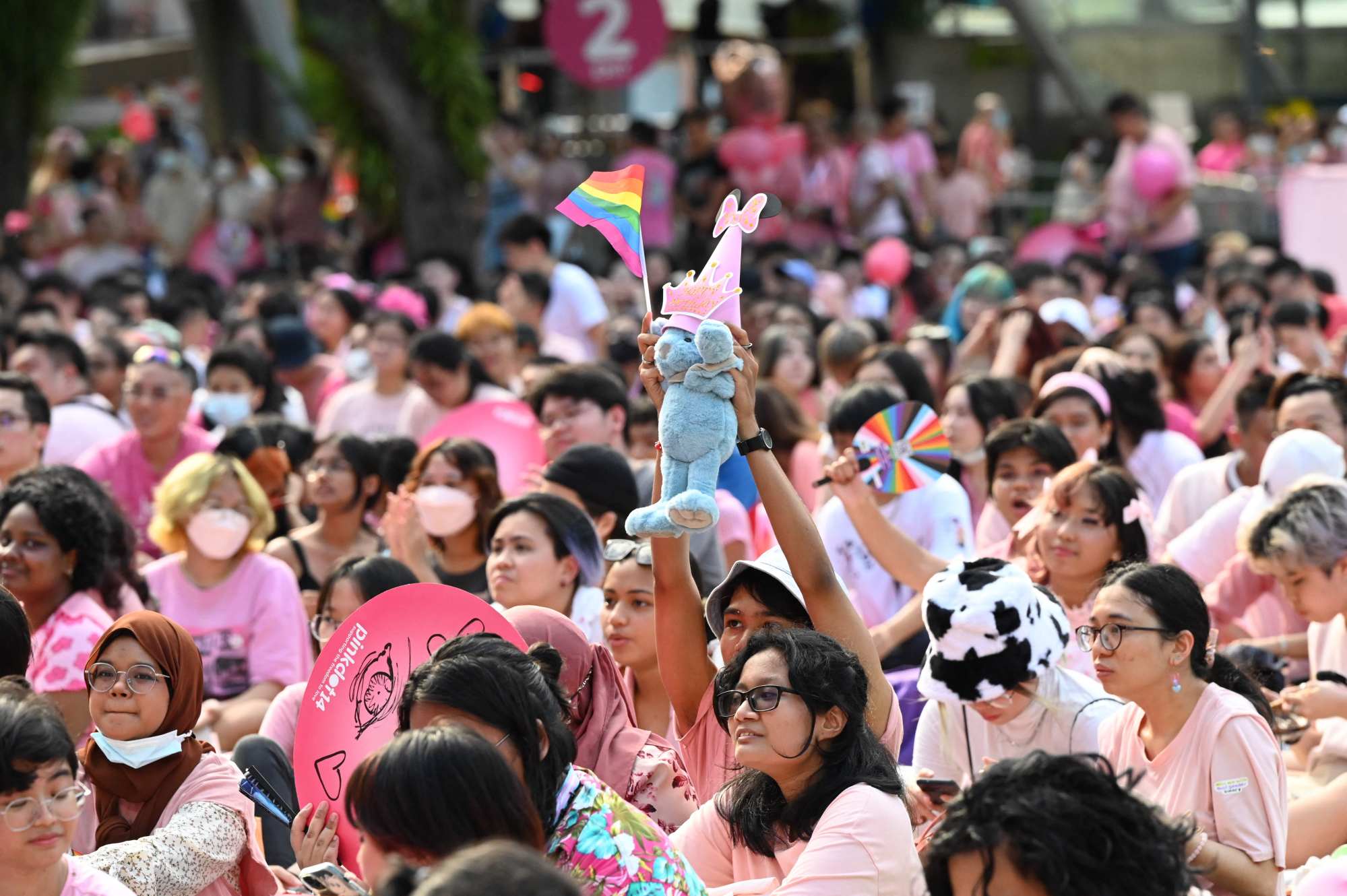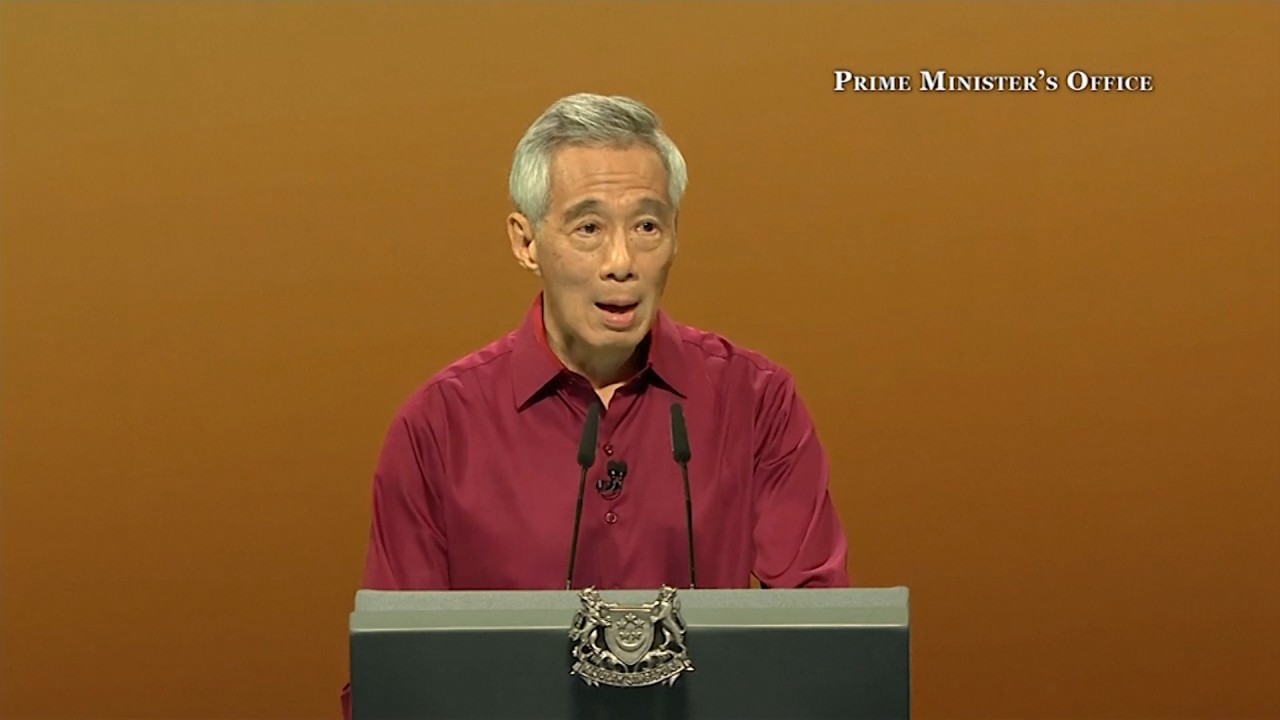
Singapore to scrap anti-gay sex law, amend constitution to prevent marriage equality
- PM Lee said in a key policy speech that the dual move represented a balance of views among Singaporeans on the issue
- It will provide ‘some relief to gay Singaporeans’ while also retaining ‘the basic family structure of marriage between a man and a woman’
Speaking during his annual policy address, Lee said the dual move represented a “political accommodation … that balances different legitimate views and aspirations among Singaporeans” on the issue.
The announcement was widely expected, with local media in recent days publishing reports speculating on the form of constitutional amendments that might be enacted to accompany the scrapping of a law that is a holdover from the time of British colonial rule.
Some religious groups have strongly opposed changes to the status quo, with a major bloc representing the Pentecostal and Charismatic Churches saying that repealing S377A would facilitate “the progress of a brand of intolerant and aggressive LGBT activism which seeks to impose its ideology upon Singapore society”.
In his speech, Lee said the government’s consultations before its decision found that “most Singaporeans do not want the repeal to trigger a drastic shift in our societal norms across the board”.
Singaporeans must be wary of rising foreign influence efforts, PM Lee warns
He added: “For most, their main worry is what they feel S377A stands for, and what they fear repealing it may quickly lead to.”
Separately, Singapore’s law and home affairs minister K. Shanmugam and attorney general Lucien Wong had advised the government on the possibility of the country’s apex court striking down the law if it were asked to consider the issue again, Lee said.
In March, the Court of Appeal upheld the law – as it had done in previous occasions – maintaining its position that any change to the status quo would require a decision by the executive branch.
The judges however stopped short of saying that the law was constitutional, noting instead that it was “unnecessary” to consider that question as the appellants in the latest case did not face “any real and credible threat of prosecution under S377A”.

Consecutive attorneys general in the past decade have said they would not enforce the law.
With these considerations in mind, the government will fortify the country’s current legal definition of marriage: under the law, only marriages between one man and woman are recognised in the city state.
Lee said the constitution would be amended to “protect the definition of marriage from being challenged constitutionally in the courts”.
“This will help us repeal S377A in a controlled, carefully considered way. It will limit this change to what I believe most Singaporeans will accept, which is to decriminalise sexual relations between consenting men in private,” Lee said.
Lee Kuan Yew’s grandson Li Huanwu marries partner in South Africa
“But it will also keep what I believe most Singaporeans still want, and that is to retain the basic family structure of marriage between a man and a woman, within which we have and raise our children.”
Lee did not provide details on when exactly S377A will be repealed.
The Sunday announcement was lauded as a progressive step for the gay community in Singapore. While Lee’s government has stressed that S377A would not be actively enforced, activists had long argued that its symbolism was socially corrosive and it encouraged discrimination and stigma.
Remy Choo, a lawyer who has fronted past constitutional challenges to take down S377A, described the announcement as “long overdue”.
Tomorrow, the healing will begin, but the road to equality will be a long one. We have taken the first step
“With the repeal of S377A, LGBTQ Singaporeans will no longer be considered criminals in the eyes of the law. This law has caused untold harm to a significant section of our population,” he said.
“In legitimising discrimination, S377A has torn families apart, caused people to live their lives in fear, and it has caused countless Singaporeans to hide the very essence of who they are and how they love.”
Choo suggested, however, that striking off the law would not end discrimination. “Tomorrow, the healing will begin, but the road to equality will be a long one,” he said. “We have taken the first step.”
Brits’ male prostitute habit: real target of Singapore’s anti-gay law?
After Lee’s speech, 22 LGBT organisations released a joint statement saying the repeal of S377A was the “first step on a long road towards full equality” for Singapore’s LGBT community.
“Our immediate priorities in the wake of S377A will be to tackle the areas of discrimination that we continue to face at home, in schools, workplaces, and in housing and health systems,” the statement said.
Bryan Choong, chair of the LGBT counselling group Oogachaga, said the organisation was “excited and hopeful” to learn of the impending repeal of S377A.


